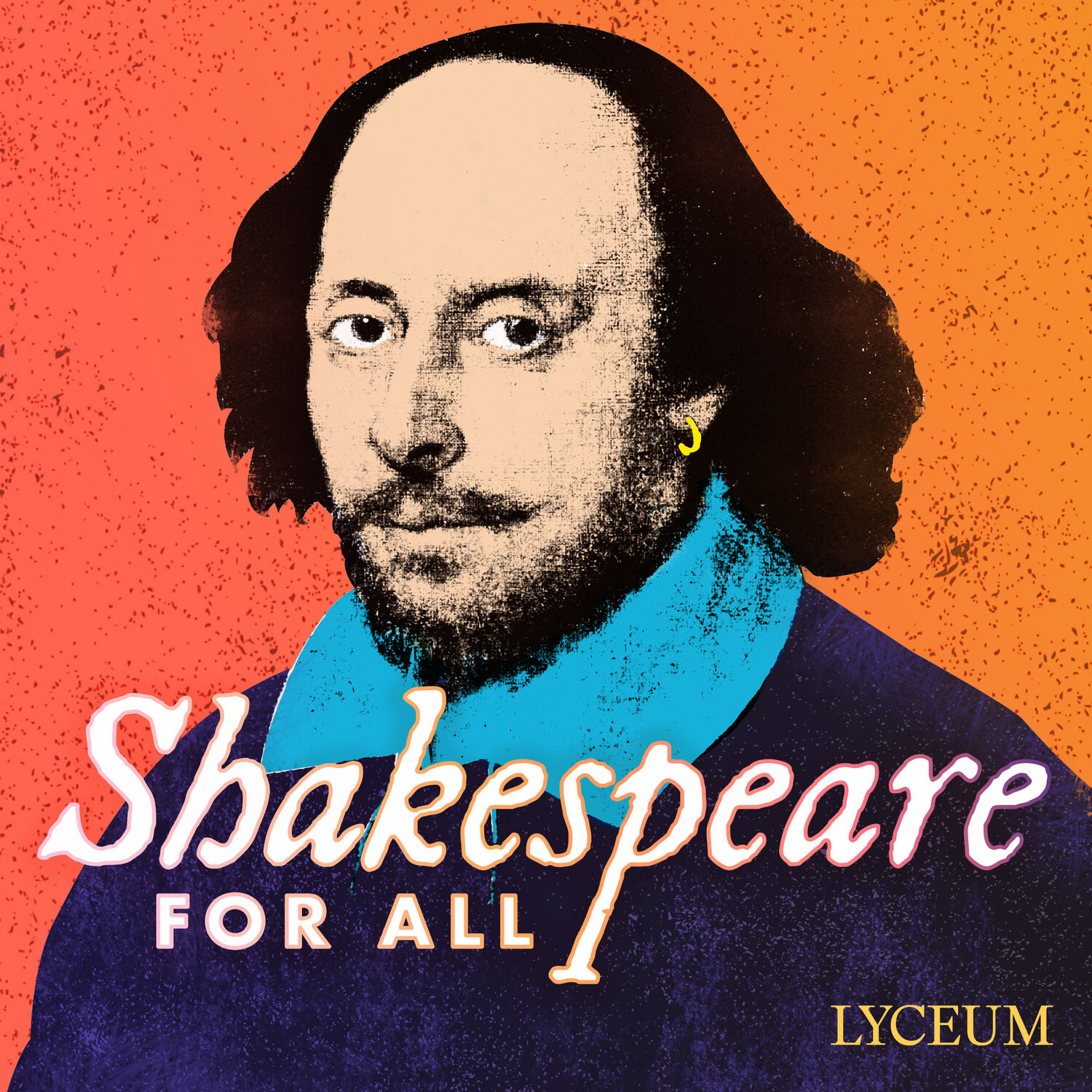Coriolanus
“HE HAS WINGS”
What You'll Learn
The story of Coriolanus and key historical context
The enduring political questions raised by the play
The contradictions that can beset elite systems of value, and how these are reflected in Coriolansus’ character arc
Course Outline
Episode 1: Summary of the play with historical context
Episode 2: Analysis of the play’s language, political themes, and of Coriolanus’ character arc
Episode 3: Actors’ recordings of key speeches from the play and discussion of those speeches
Works Consulted for this Course
Adelman, Janet. Suffocating Mothers : Fantasies of Maternal Origin in Shakespeare's Plays, Hamlet to the Tempest. New York: Routledge, 1992.
Cavell, Stanley. “'Who Does the Wolf Love?': Reading Coriolanus.” Representations (Berkeley, Calif.), vol. 3, no. 1, University of California Press Books Division, 1983, pp. 1–20, https://doi.org/10.1525/rep.1983.3.1.99p0388u.
Garber, Marjorie B. Shakespeare After All. New York: Pantheon Books, 2004.
Hazlitt, William. Characters of Shakespeare's Plays. Originally published London: C. H. Reynell, 1817. Accessed via Project Gutenberg, published 2011. <https://www.gutenberg.org/cache/epub/5085/pg5085.html>
James, Heather. “A Modern Perspective: Coriolanus.” Folger Shakespeare Library. <https://shakespeare.folger.edu/shakespeares-works/coriolanus/coriolanus-a-modern-perspective/>
Shakespeare, William. The Riverside Shakespeare. 2nd ed. Edited by G. Blakemore Evans, and J. J. M Tobin. Boston: Houghton Mifflin, 1997.
Shakespeare, William. Coriolanus. Edited by Lee Bliss. The New Cambridge Shakespeare. Cambridge: Cambridge University Press, 2010.
Shakespeare, William. Coriolanus. Edited by Peter Holland. London: The Arden Shakespeare, 2013.
Shakespeare, William. The Norton Shakespeare. Edited by Stephen Greenblatt, Walter Cohen, Suzanne Gossett, Jean E. Howard, Katharine Eisaman Maus and Gordon McMullan. 3rd ed. New York: W. W. Norton & Company, 2016.
Smith, Emma. This Is Shakespeare. New York: Pantheon Books, 2020.
The culmination of Shakespeare’s career writing Roman history plays and plays of war, Coriolanus is a searing, relentless story about what happens when a culture gets what it wants. Coriolanus is the elite soldier who’s been shaped by his mother and by his Roman culture to value military service, valor, and honor above all else. But when he’s rejected by the people he’s defended – and scorned – Coriolanus turns his Roman valor against Rome. In this course, you’ll learn the story and context of Coriolanus, explore the perennial political questions the play raises, and grapple with the fierce, implacable character of Coriolanus himself, to ask if this “unswayable” man ever changes, and how.
In Part 1, you’ll be guided through a detailed account of the story with commentary by Philip Lorenz, Professor of English at Cornell University. You’ll learn key context behind the play, from the source story of the historical Coriolanus to events in Shakespeare’s own day, that will clarify the political questions that the play works to highlight. This summary is told using the language of the play itself, placing key quotations in context to help you understand where these lines come from and what they mean.
Part 2 begins with a discussion of those political questions – who should have power in a political community? Is power a right or a reward? – and how they are reflected in the play’s imagery. It goes on to explore the paradoxes within the values of Rome and how Coriolanus reveals and struggles with those paradoxes. It concludes by examining the surprising choices that Coriolanus makes at the play’s end to ask whether those choices reflect Coriolanus’s attachment to his inherited Roman values, or an ability to change – to metamorphose.
Part 3 features close-readings of four key speeches and scenes that set out the play’s central dilemma, as they speak for a cooperative political community and the elite warrior ideal that Coriolanus is meant to embody.
You can hear the third episode of this course for free below. For access to the full course and all of Season Two, subscribe today on Himalaya Learning. Use the promo code BARD for 30 days free.
Speeches and Performers
Menenius, citizens, and Martius, Act 1, “I shall tell you a pretty tale …” (David Collins)
Volumnia and Virgilia, Act 1, “If my son were my husband…” (Joyce Branagh)
Coriolanus, Act 3, “Well, I must do ‘t…” (Keith Hamilton Cobb)
Cominius and Menenius, Act 4, “He is their god …” (David Collins)
Course Instructor
Philip Lorenz
Associate Professor of Comparative Literature and English at Cornell University
Philip Lorenz is an Associate Professor of Comparative Literature and English at Cornell University, where he teaches courses on Shakespeare, Spanish and English Renaissance drama and literary theory. His research focuses on the concept of sovereignty in early modern England and Spain. His 2013 book, The Tears of Sovereignty, Perspectives of Power in Renaissance Drama, examined the representation of sovereignty in paradigmatic plays of English and Golden Age drama, and his current project “Baroque Files” follows the afterlives of that story as the concept of sovereignty moves away from the symbolism of sacred kings into increasingly fragmented and abstract forms.



